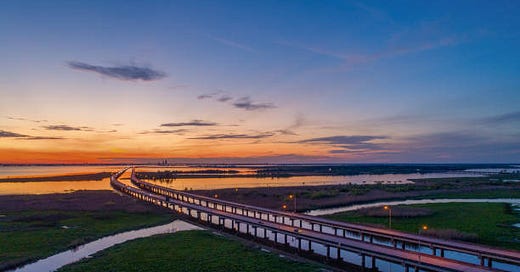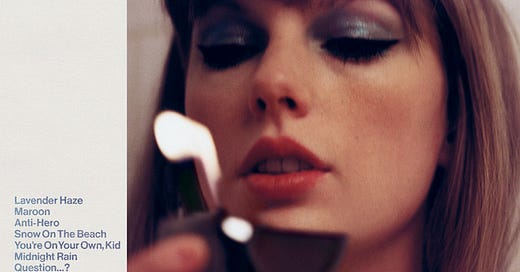
This coming Saturday, April 1, I’ll be competing in a bike race in Virginia’s Blue Ridge Mountains that will traverse a total of 110, hilly miles on gravel and paved roads. While I’m fairly certain I’m in good enough shape to have a respectable chance at finishing, I’m under no naïve assumptions that this race will be enjoyable, let alone easy. Should our target pace hold, my teammate, Father Brendan Fitzgerald, and I will need to pedal for approximately 11 hours.
As race day draws nearer, I find myself asking again and again: Why am I doing this? That is a question I have about both this race in particular and biking in general. And there are a number of ways I could answer. For the race itself, the simple fact of its existence and it being within the realm of my perceived ability is enough for me to want it. But why I bike and why I like long — absurdly long — bike rides is theological.
There isn’t language adequate to speak about the reality that I’m going to attempt to describe. I’ll start by using the word anxiety. To me biking is a salve for anxiety. I don’t primarily mean the condition of being anxious about this or that, although anxiety of that kind is part of my experience and certainly one of the reasons I bike. No, the anxiety I have in mind is closer to angst: more of a deep, abiding existential dread than a condition of concern triggered by circumstance. This angst was famously expressed by the Danish philosopher Søren Kierkegaard who adapted Jesus’ words in today’s Gospel to call this angst the sickness unto death. The sickness that is not unto death is that which kills only the body, Kierkegaard thought; but the more dreadful sickness — sickness unto death — is that which kills the soul.
A person plagued with the sickness unto death lives in fear, dread, angst, and anxiety at an existential level. This condition is the result, the philosophers tell us, of recognizing our finitude in the face of infinity: that we are small, unnecessary beings in the midst of a vast, unnecessary world which has no prior meaning and in which we have no purpose outside that which we make. We, the world, and our place in the world are simply and literally absurd. Thinking on and through these ideas too much — as by my calculations I should be doing around mile 50 — is guaranteed to leave one thoroughly sick in the soul with despair. And it gets worse.
In the Christian life, what I’ve just described takes on a unique character and afflicts us with a heightened severity on account of two truths of revelation. First, we believe firmly that Christ the Lord has conquered sin and death definitively by his death on the cross and triumph over the grave. And because these thereby have no standing in the unconquerable light of Christ, Scripture is right to tell us Fear not! and Do not be afraid! On the one hand, despair has no place in the Christian life for Christ’s victory is final. But on the other hand, we know as a matter of plain fact that despite our redemption we remain sinners constantly batting our basest passions and ever falling victim to them. Yet here is the second truth: we are not supposed to be this way. Christ’s victory on the cross 2000 years ago is meant to reach us, drench our soul, and run from there through every fiber of our being. We are supposed to live not as we do but as Christ does.
And that is a very nice idea — one on which I could elaborate for quite a while — that Christ not only can change us but desires at this and every moment to do so. A nice idea it would be, if only we weren’t such a stinkin’ mess. And here, in the chasm between these two truths, is the Christian form of despair: the truth of Christ’s definitive victory and his desire for that victory to be victorious in us and the truth of our wounded and bent human condition that seems to prove itself time and again beyond repair.
I won’t need to make it far into the race before I start thinking about that because I already think about it enough without needing to suffer to do so. Chances are you’ve been stuck in that chasm and known that kind of despair for yourself. I hear it every day in the confessional. I feel it every day in prayer. But I began this homily by saying that biking helps me through it, that it’s my cure for the sickness unto death. Now I’m in a position to explain what I mean.
Riding a bike, especially for a long time with many miles and many hills to go, reinforces a fundamental principle of the Christian life, all too often forgotten: you must simply keep going. If you don’t go, you can’t get there. And going and getting there requires you to put one foot in front of the other and just keep pedaling. What spending a lot of time in the saddle has taught me is that the worst headspace to be in for a long ride is thinking too much about how little you’ve gone and how far you’ve yet to go. The same is true of the Christian life. Heaven is an eternity away; sin chases your tail. Don’t look back. Keep the bike pointed forward. But focus here and now on what’s before you, and don’t look too far down the road.
Pedaling through the Christian life away from sin and toward heaven, however, requires more than mere willpower alone. We call these propellants that move us through the toils, fears, and anxieties of this life the theological virtues of faith, hope, and love. And these are always first and foremost gifts from God that make the life to which he calls us possible.
Faith, hope, and love move us through the chasm between sin and salvation and ensure that we don’t get stuck for long in the sickness of despair. Faith is our confidence in what we cannot see. Faith fixes our sights above and beyond the brokenness of our human condition and enables us to believe in God’s promise to give us new life. Hope is our assurance that God is faithful to his promises that lifts us out of the rut of thinking we have been abandoned and left for dead. Love is the response of a heart that does not close in on itself, obsessing over its own condition but opens out toward others, lifting them out from the same chasm in which we are all prone to dwell. The gifts of faith, hope, and love are the means through which the Spirit raises us to life by the Son calling us forth from the tomb to live now and eternally as the sons and daughters of the Father that we are.
I pray in a week’s time that I’ll remember my own advice and so finish my race. But my greater prayer is that as we journey together through the remainder of Lent and Holy Week — days in which we are reminded both of our salvation and our sin — that through our celebration of the mystery of our redemption that God would bring us closer and closer toward its final and ultimate fulfillment in us all. Amen.
Homily preached March 26, 2023 at the Cathedral of Mary Our Queen.













